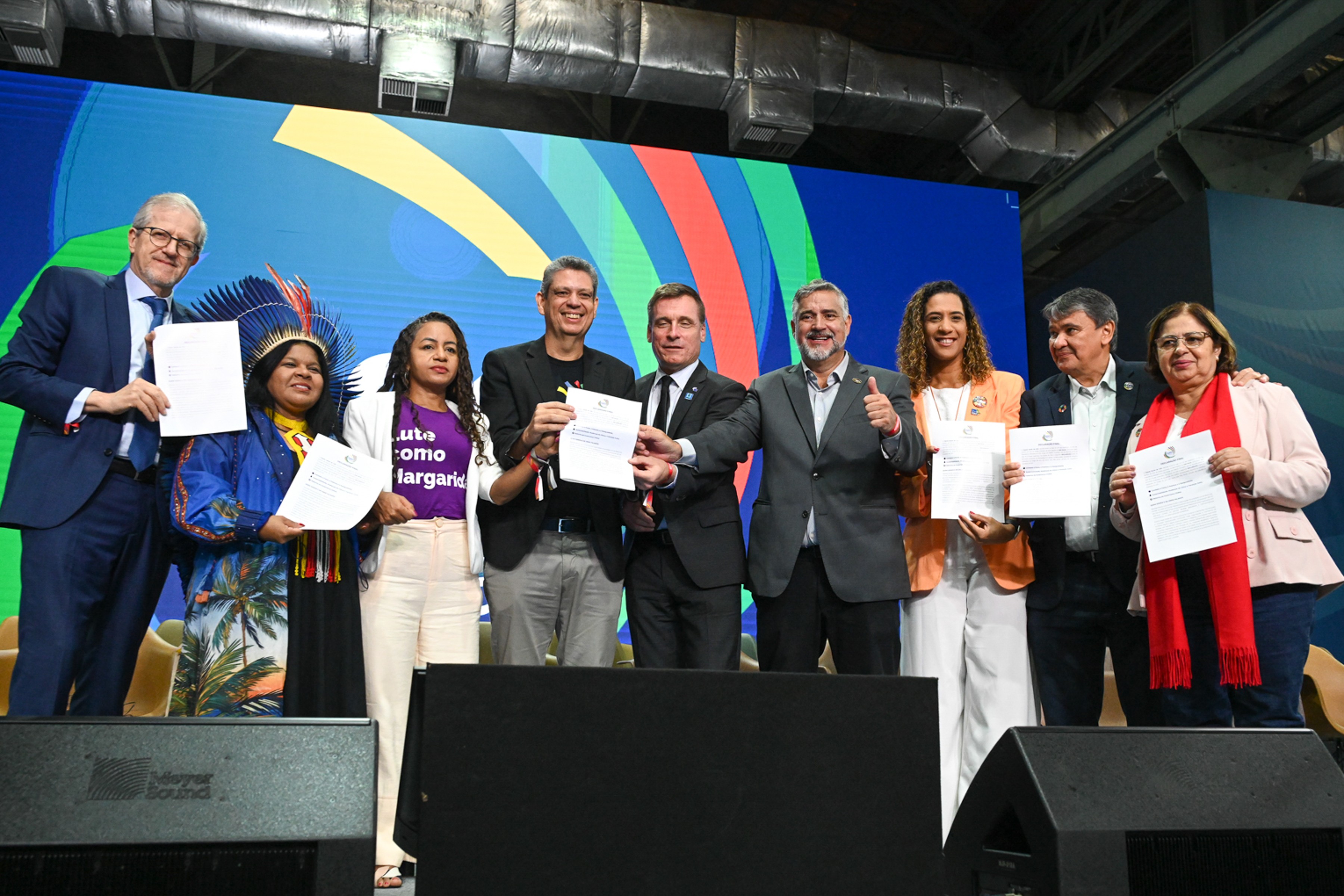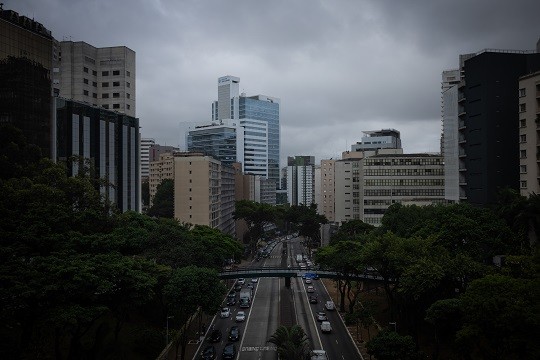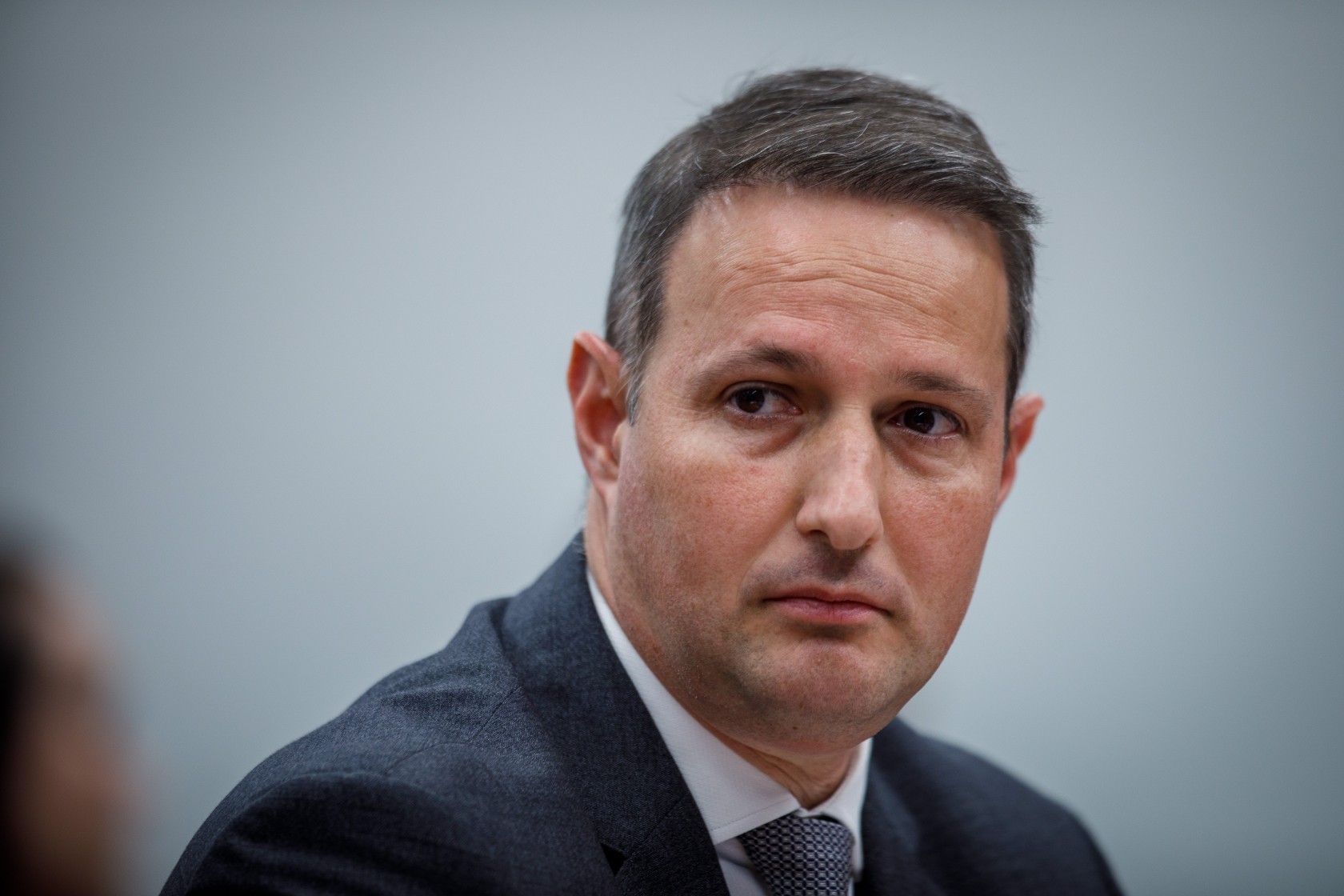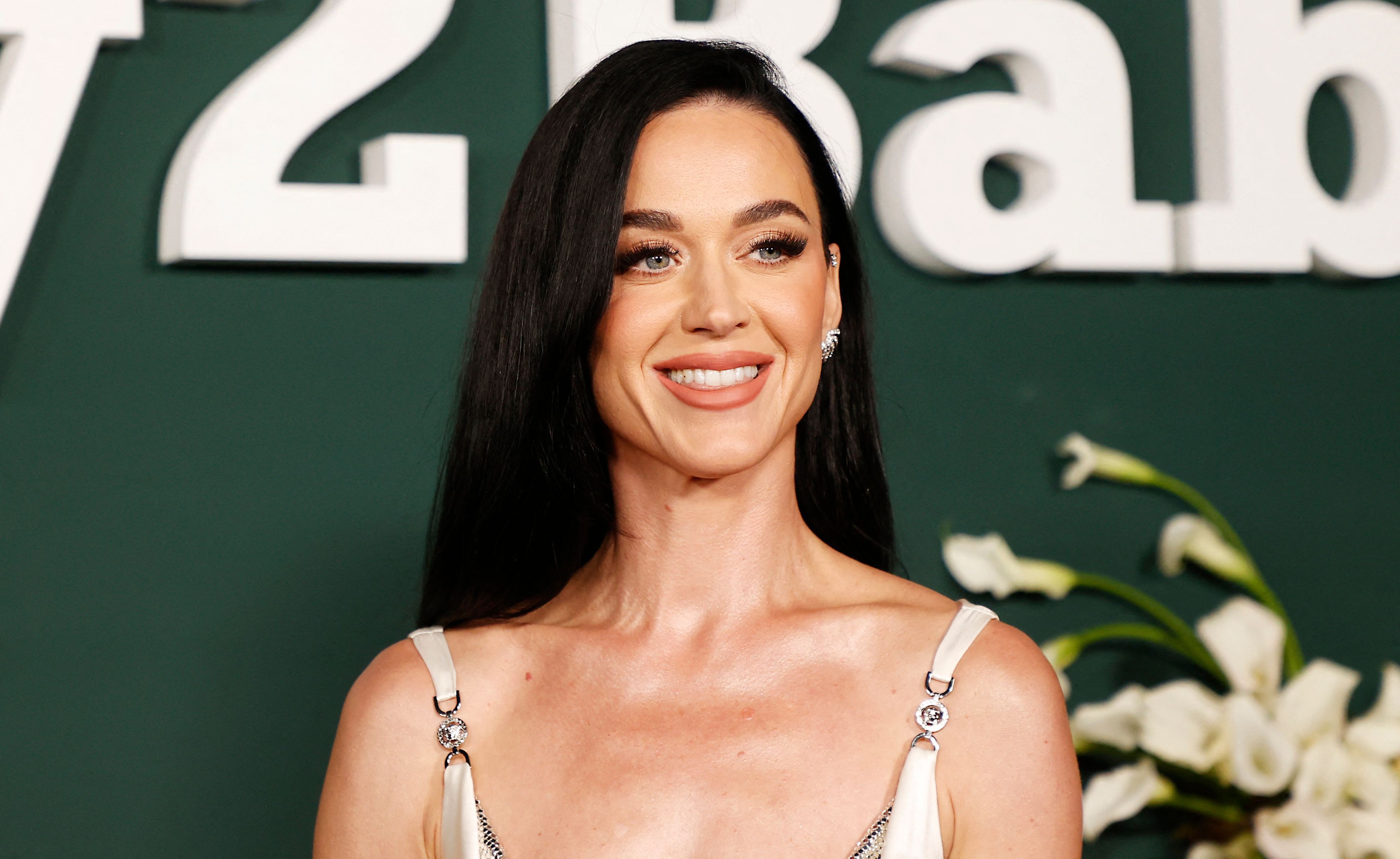G20 Social final statement advocates taxing the ultra-wealthy and condemns far-right misinformation
Declaration also urges countries to join the Global Alliance against Hunger and Poverty; Lula calls it a 'historic moment for the G20' The G20 Social, an unprecedented initiative led by civil society representatives alongside the G20, concluded on Saturday in Rio with the presentation of a final statement advocating for the "progressive taxation of the ultra-wealthy," emphasizing that democracy "is at risk when far-right forces spread misinformation," and calling for a reform of the United Nations Security Council to increase the participation of Global South countries. G20 in Rio: See how traffic and commerce will be during the mega-holiday in the capital Fun in Rio: 20 paired activities for the G20 holiday weekend in Rio de Janeiro Following the reading, the statement was approved by acclamation by the audience at Armazém 3 in Praça Mauá, which included representatives from social movements. The document was read by Mazé Morais, the national secretary of Women at Contag (National Confederation of Agricultural Workers), representing Brazilian civil society at the event. The document directly references the reform of the United Nations (UN) Security Council to reflect "contemporary geopolitics" and the aspirations of the so-called "Global South." The call for reform of multilateral organizations and taxation of the ultra-wealthy is part of Brazil's priority agenda and is included in the G20 Summit negotiations. However, consensus on the need to tax billionaires is at risk after Argentina withdrew its previous support for the issue. There is an expectation that the advocacy for taxing the ultra-wealthy will also be included in the final declaration of the G20 summit, despite Argentina's last-minute resistance under the presidency of Javier Milei. President Luiz Inácio Lula da Silva did not attend the document reading event but was present at the meeting's closing. According to Lula, the participation of organizations and social movements was crucial for Brazil's presidency in the bloc. — This is a historic moment for me and for the G20. Over the course of this year, the group gained a third pillar, which joined the political and financial pillars: the social pillar, built by you — he said. — I will take the recommendations contained in the final declaration you delivered to me to the other G20 leaders and work with South Africa to ensure they are considered in the group's discussions. The document also advocated for a "reform of global governance to ensure the end of armed conflicts" and the "fight against hunger, poverty, and inequality," with the "urgent adherence of all G20 countries to the initiative of the Global Alliance against Hunger and Poverty." "To achieve these objectives, we advocate for the urgent reform of the current model of global governance. We emphasize the urgent need to reform international institutions to reflect contemporary geopolitical reality, promoting multilateralism and the participation of Global South countries. Specifically, the reform of the UN Security Council is imperative", states a section of the document. Interview: 'Consensus in the G20 would reshape future with Trump,' says Tatiana Rosito, coordinator of the finance track The final statement of the G20 Social also criticized attacks on democracy, attributing them to the far-right by mentioning that the Security Council reform should "embrace the premise of promoting democracy." "Democracy is at risk when far-right forces promote misinformation, totalitarian discourses against human rights, fostering xenophobia, racism," the text states. Reducing deforestation The G20 Social's final declaration also called on world leaders to commit to reducing deforestation and greenhouse gas emissions. The declaration also discussed the creation of a "Tropical Forest Fund Forever," supported by international resources, to ensure forest preservation and aid the populations living within them. The document asserts that the "highest priority" should be the adherence of all G20 countries and other states to the "Global Alliance against Hunger and Poverty." "In alignment with the Sustainable Development Goals of the UN Agenda 2030, this alliance should promote cooperation and inter-cooperation among countries and international organizations, establishing a specific fund to finance public policies and programs to combat hunger, ensuring universal access to adequate food," the document states. Additionally, there is support for initiatives that favor "democratized access to land and water," and cooperation among different countries and international organizations to expand and improve access to food for the global population. "We advocate for food sovereignty through the production of healthy food as a pillar to eradicate the scourge of hunger globally," another section of the document states. Unprecedented initiative The G20 Social, held parallel to the G20 heads of state summit, was an unprecedented initiative by the Brazilian presid


Declaration also urges countries to join the Global Alliance against Hunger and Poverty; Lula calls it a 'historic moment for the G20' The G20 Social, an unprecedented initiative led by civil society representatives alongside the G20, concluded on Saturday in Rio with the presentation of a final statement advocating for the "progressive taxation of the ultra-wealthy," emphasizing that democracy "is at risk when far-right forces spread misinformation," and calling for a reform of the United Nations Security Council to increase the participation of Global South countries. G20 in Rio: See how traffic and commerce will be during the mega-holiday in the capital Fun in Rio: 20 paired activities for the G20 holiday weekend in Rio de Janeiro Following the reading, the statement was approved by acclamation by the audience at Armazém 3 in Praça Mauá, which included representatives from social movements. The document was read by Mazé Morais, the national secretary of Women at Contag (National Confederation of Agricultural Workers), representing Brazilian civil society at the event. The document directly references the reform of the United Nations (UN) Security Council to reflect "contemporary geopolitics" and the aspirations of the so-called "Global South." The call for reform of multilateral organizations and taxation of the ultra-wealthy is part of Brazil's priority agenda and is included in the G20 Summit negotiations. However, consensus on the need to tax billionaires is at risk after Argentina withdrew its previous support for the issue. There is an expectation that the advocacy for taxing the ultra-wealthy will also be included in the final declaration of the G20 summit, despite Argentina's last-minute resistance under the presidency of Javier Milei. President Luiz Inácio Lula da Silva did not attend the document reading event but was present at the meeting's closing. According to Lula, the participation of organizations and social movements was crucial for Brazil's presidency in the bloc. — This is a historic moment for me and for the G20. Over the course of this year, the group gained a third pillar, which joined the political and financial pillars: the social pillar, built by you — he said. — I will take the recommendations contained in the final declaration you delivered to me to the other G20 leaders and work with South Africa to ensure they are considered in the group's discussions. The document also advocated for a "reform of global governance to ensure the end of armed conflicts" and the "fight against hunger, poverty, and inequality," with the "urgent adherence of all G20 countries to the initiative of the Global Alliance against Hunger and Poverty." "To achieve these objectives, we advocate for the urgent reform of the current model of global governance. We emphasize the urgent need to reform international institutions to reflect contemporary geopolitical reality, promoting multilateralism and the participation of Global South countries. Specifically, the reform of the UN Security Council is imperative", states a section of the document. Interview: 'Consensus in the G20 would reshape future with Trump,' says Tatiana Rosito, coordinator of the finance track The final statement of the G20 Social also criticized attacks on democracy, attributing them to the far-right by mentioning that the Security Council reform should "embrace the premise of promoting democracy." "Democracy is at risk when far-right forces promote misinformation, totalitarian discourses against human rights, fostering xenophobia, racism," the text states. Reducing deforestation The G20 Social's final declaration also called on world leaders to commit to reducing deforestation and greenhouse gas emissions. The declaration also discussed the creation of a "Tropical Forest Fund Forever," supported by international resources, to ensure forest preservation and aid the populations living within them. The document asserts that the "highest priority" should be the adherence of all G20 countries and other states to the "Global Alliance against Hunger and Poverty." "In alignment with the Sustainable Development Goals of the UN Agenda 2030, this alliance should promote cooperation and inter-cooperation among countries and international organizations, establishing a specific fund to finance public policies and programs to combat hunger, ensuring universal access to adequate food," the document states. Additionally, there is support for initiatives that favor "democratized access to land and water," and cooperation among different countries and international organizations to expand and improve access to food for the global population. "We advocate for food sovereignty through the production of healthy food as a pillar to eradicate the scourge of hunger globally," another section of the document states. Unprecedented initiative The G20 Social, held parallel to the G20 heads of state summit, was an unprecedented initiative by the Brazilian presidency of the forum. The final declaration delivered on Saturday was prepared with the participation of actors and organizations representing various groups of Brazilian and international civil society over the past three days. Attending the final declaration reading ceremony were Márcio Macêdo, Minister of the General Secretariat of the Presidency and coordinator of the G20 Social on behalf of the federal government, along with other ministers from Lula's government, including Sônia Guajajara (Indigenous Peoples), Wellington Dias (Social Development), Anielle Franco (Racial Equality), and Cida Gonçalves (Women). The translation of this text into english was carried out by Project Irineu, O GLOBO's initiative to develop artificial intelligence tools. Here is the link to the original report.
Qual é a sua reação?


































